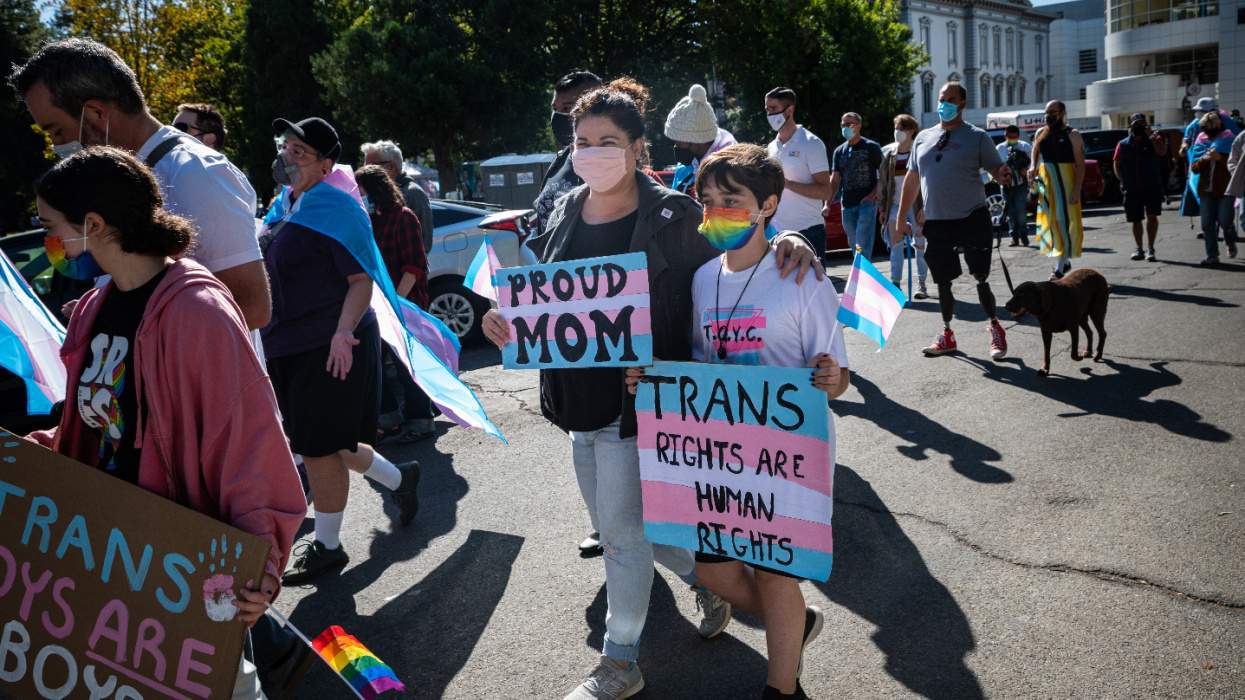Earlier this week, the World Health Organization released a report urging governing bodies to put an end to "forced, coercive, and otherwise involuntary sterilization" of transgender individuals.
Often times, trans individuals are faced with a choice between being recognized as their true gender and being able to make decisions regarding their own reproductive health and abilities.
Genital reconstrucive surgeries often leave trans individuals sterile, and while many major medical authorities support access to this medical care, the WHO's latest report urges countries to remove surgical requirements in a path toward legal recognition of one's name and gender.
"Some groups, such as transgender and intersex persons, [have] a long history of discrimination and abuse related to sterilization, which continues to this day," the report reads. "Such violations are reflected, for example, in the various legal and medical requirements, including for sterilization, to which transgender and intersex persons have been subjected in order to obtain birth certificates and other legal documents that match their preferred gender."
"In many countries, transgender and also intersex persons are required to undergo sterilization surgeries that are often unwanted, as a prerequisite to receiving gender-affirmative treatment and gender-marker changes," the report continues.
While many trans and intersex individuals choose to undergo these procedures even with the knowledge that this will result in their own sterilization, others are forced to weigh the risks of surgery and desire to be able to have biological children. Additionally, as these surgical procedures are often not covered by insurance and are highly expensive, many trans and intersex individuals are left unable to obtain legal gender recognition as a result of their economic class.
"According to international and regional human rights bodies and constitutional courts, and as reflected in recent legal challenges in several countries, these sterilization requirements run counter to respect for bodily integrity, self-determination, and human dignity, and can cause and perpetuate discrimination against transgender and intersex persons," the report reads. "Discrimination on the basis of gender identity has been recognized by international human rights bodies as a human rights violation. Human rights bodies have condemned the serious human rights violations to which transgender and intersex persons are subjected and have recommended that transgender and intersex persons should be able to access health services, including contraceptive services such as sterilization, on the same basis as others: free from coercion, discrimination, and violence. They have also recommended the revision of laws to remove any requirement for compulsory sterilization of transgender persons."
Earlier this year, transgender model Geena Rocero launched Gender Proud, an organization dedicated to working towards a world in which trans individuals can be recognized for their gender with the fewest possible barriers, taking spepcific aim at surgical requirements for legal gender change.















Charlie Kirk DID say stoning gay people was the 'perfect law' — and these other heinous quotes
These are some of his worst comments about LGBTQ+ people made by Charlie Kirk.